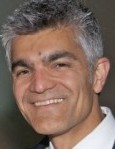
By Raj Pandya
In the last several months, I’ve had lots of prompts to think about how science fits into the wider world. It started with questions about a TEX project that seeks to use scientific data to update indigenous communities’ traditional ecological calendars. The concern was that the calendars themselves aren’t based on scientific processes and TEX shouldn’t be buttressing non-scientific approaches. Not long after, I attended a National Academies-hosted discussion which included a debate about whether helping communities adapt to climate change, without also doing mitigation work, betrayed the urgent need to reduce future emissions.
The common thread was this: Can we use science to support societal goals without sacrificing the integrity of the science itself? What parts of what we think of science are negotiable, and which aren’t? Classic baby and bathwater problem, and I wasn’t even sure what was the baby and what as he bathwater. Dan Sarewitz has an excellent essay about some of what he considers bathwater, but it didn’t help me figure out what the baby was.
I recalled a maxim I learned as a young scientist: If you can’t publish it, it doesn’t count. Since TEX promotes outcomes and impacts, not papers, I started to wonder if TEX was even doing science anymore. Had we throw out the baby?
Or what if there wasn’t really a baby at all? In 2008, I had the chance to invite Albert Whitehat, a Lakota elder and linguist, to the National Center for Atmospheric Research. He mentioned that Lakota language didn’t contain words like pray and science, because prayer and science weren’t distinct activities. What if science isn’t a unique truth, but just another tool we use to interact with and respond to the world?
A couple of experiences helped me think about this.
First, I heard Cara Pike at the National Adaptation Forum: “maybe we need to stop talking about the co-benefits of climate change, and start talking about climate change adaptation as a co-benefit.” Even if our baby doesn’t have the lead role in the school pageant, that doesn’t make him or her less special. We don’t betray our mitigation goals by working on adaptation, we don’t undermine scientific integrity by helping people use science in other processes, and science isn’t less true if it shares features with other ways of knowing.
I also remembered a conversation with Shirley Malcom, Head of Education and Human Resources Program at AAAS, where she reminded that you can’t control how people think, but can you show them how to behave. She was speaking in the context of diversity and equity, but it mapped to this question of doing and using science. Meet people where they are and help them grow. We don’t undermine our science by offering our data to a process that predates science. Adaption is an on-ramp to mitigation, not a diversion.
Finally, I got to work with Russ Sands, Anna Marandi and Beth Gibbons at the Innovations in Building Resilient Communities Sustainable Communities Leadership Academy event. We planned a workshop around helping city leaders build community support for climate change, but the leaders in the workshop took things to a better place. The leaders focused on how they could help community members give voice to their priorities, and told Russ and I to trust that climate change would come up. At a deeper level, I realized that what they were saying is that that the ability of community members to advocate is fundamental to resilience, and that this resilience is a generalizable capacity that, in turn, furthers the goal of climate adaptation. (Maria Lemos gave a good talk once about the notion that a general adaptive capacity is more valuable than being adapted to specific threats.)
So, mapping this all to TEX, I got to a place where I could quiet those pesky demons around the “right” use of science. Here it goes:
- Science is a useful tool, and offering it to communities as just one tool actually advances science by allowing our methods to evolve. Together, we will innovate and use science in new ways, and those new ways will become essential to what science means in the future.
- We don’t need to sweat the boundaries of what is science and what isn’t science. We can simply share the techniques, practices and processes we find useful in science, and decide together what is useful and usable in other contexts, what fits.
- We don’t need to worry about science being “tainted” by other methods, either. As long as we are all beholden to impact, the integrity of what we do will be ensured in the tangible things we accomplish together.
What do you think? Which baby name has the best ring to it: Evolving, Useful, Impactful?
